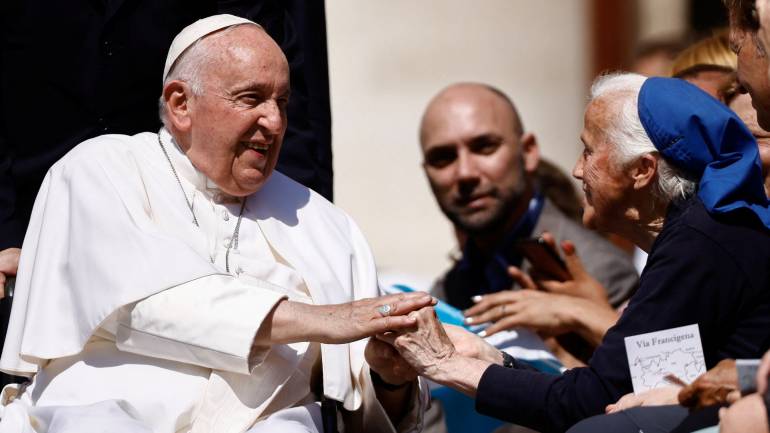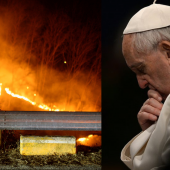Pope Francis hospitalized for abdominal surgery

Pope Francis was admitted to Gemelli University Hospital in Rome. In the afternoon, he underwent a laparotomy and plastic surgery of the abdominal wall on June 7.
Vatican officials said the procedure had been agreed to in previous days because the pontiff suffers from recurrent, painful, and worsening sub-occlusive syndrome due to a lacerated incisional hernia.
According to reports, Pope Francis will remain in the hospital for "several days" in order to fully recover.
This is the second time Francis has been admitted to the hospital in recent months.
In March, a storm of television crews and reporters gathered in front of the Gemelli, where the pope had been recuperating after a bout of bronchitis.
He underwent delicate intestinal surgery at the same hospital nearly two weeks later, in July 2021.
A cataract was treated at Rome's Clinic of Pius XI in 2019, and he also suffered chronic sciatica pain.
Since last year, he has been limited to using a cane or wheelchair due to knee problems.
During Francis' absence, the Vatican may face a constitutional crisis, as there is no "vice pope" in the Catholic system who can exercise the pope's authority while he is away.
Cardinal Pietro Parolin, the Vatican secretary of state, is able to oversee routine day-to-day operations but cannot appoint bishops or create or suppress dioceses around the world.
Shortly after his election in 2013, Francis told the Spanish daily ABC that he had already prepared a letter of resignation in case he became permanently disabled.
It was written several years ago and given to then-Vatican Secretary of State Cardinal Tarcisio Bertone, who resigned in 2013.
In his first public comments about the letter’s existence, the pope said, "I have already signed my renunciation."
At the time, Tarcisio Bertone was the Secretary of State, and I signed it, saying, "If I become impaired for medical reasons, here is my renunciation."
Radio Veritas Asia (RVA), a media platform of the Catholic Church, aims to share Christ. RVA started in 1969 as a continental Catholic radio station to serve Asian countries in their respective local language, thus earning the tag “the Voice of Asian Christianity.” Responding to the emerging context, RVA embraced media platforms to connect with the global Asian audience via its 21 language websites and various social media platforms.












